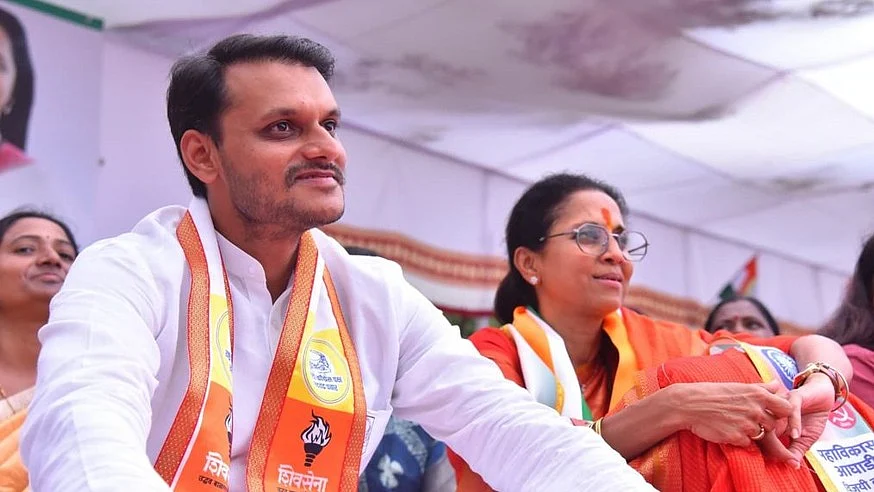Sanjiv Bhor, the face of Maratha agitation in Maharashtra after the Kopardi rape and murder case, feels that large-scale agitations have limited scope in expediting procedures. However, there is no other option but to negotiate with the government, he feels. Bhor, the spokesperson of Eknath Shinde’s Shiv Sena, has been fighting for Maratha quota for well over two decades and feels that the community need not lose hope, as a curative petition in the Supreme Court can still pave way for reservation. Excerpts from an interview with Abhijit Mulye.
The Maratha agitation appears to be intensifying. What is the government is doing?
When agitations like these take place, the leadership needs to take into account the overall picture and take steps to avoid loss of the community for which they are fighting. If they don’t do that and try building up their own image, the agitation slips out of control. We have seen this happening to several agitations by communities like the Jat, Gujjar, Patel and Kappu. They had very violent agitations. But today they have got nothing.
In comparison, the Maratha agitation in Maharashtra was milder and achieved reservation that passed the test of law in the high court. That is a remarkable achievement. Hence I feel that the government needs to get some space to operate. Today attempts are being made to nail the government. I feel this is not necessary. The government is committed and is working hard towards delivering what it promised.
Are you trying to say whatever activist Manoj Jarange-Patil has done is wrong?
No. I’m not saying that his agitation is wrong. In fact, he has done a great job of bringing the issue to the fore. In that sense, his efforts are really commendable. However, things like changing goalposts and calling government actions a farce should have been avoided, I feel. He started agitating for Marathas in Marathwada region who had been registered as Kunbis in government records. It was silent for a long time and things were being negotiated. However, a lathi-charge changed the scenario and a local agitation suddenly became a ‘state-wide’ thing. Somewhere around this point the demand, which was limited to Marathwada region, got transformed into ‘Kunbi status for all’. This was change of goalpost.
In an attempt to find a way out, the government appointed a committee. The panel is doing a good job. It has scanned more than one crore old documents and found crucial records. But its work was stalled after declaration of elections in Telangana. The panel found a way out of that situation also and started inspecting records at district and divisional headquarters. But looking at the scope of the work, it requested an extension. Calling it a farce just because they asked for extension is not desirable. In fact, the government under Chief Minister Eknath Shinde is doing something which had not been done in the past 40 years. It is finding new data that was never brought forth before. This needs to be supported. Instead extreme steps like fast unto death are being taken.
Q. You always sound hopeful of the curative petition. Why?
A. The basis on which the Supreme Court quashed the Maratha reservation was ill-founded. Also, the court was not presented with correct data. The Gaikwad commission had collected data on sugarcane labourers, Mathadi workers, farmers who had committed suicide, domestic helps, etc. All these sections of the society are dominated by the Maratha community and this data was collected by esteemed institutes like the Gokhale Institute of Politics and Economics. The numbers explain the social and economic backwardness among the Maratha community. This data wasn’t presented before the court. I feel, presenting this data will make a major difference.
In addition, the formula used to assess the percentage of Maratha community members in government services is wrong. Since the SC decision is deemed as an act, if this formula is applied to all communities that avail reservation, they all will lose their reservation. I’m hopeful that the curative petition will bring in the desired result in favour of Maratha agitation.









